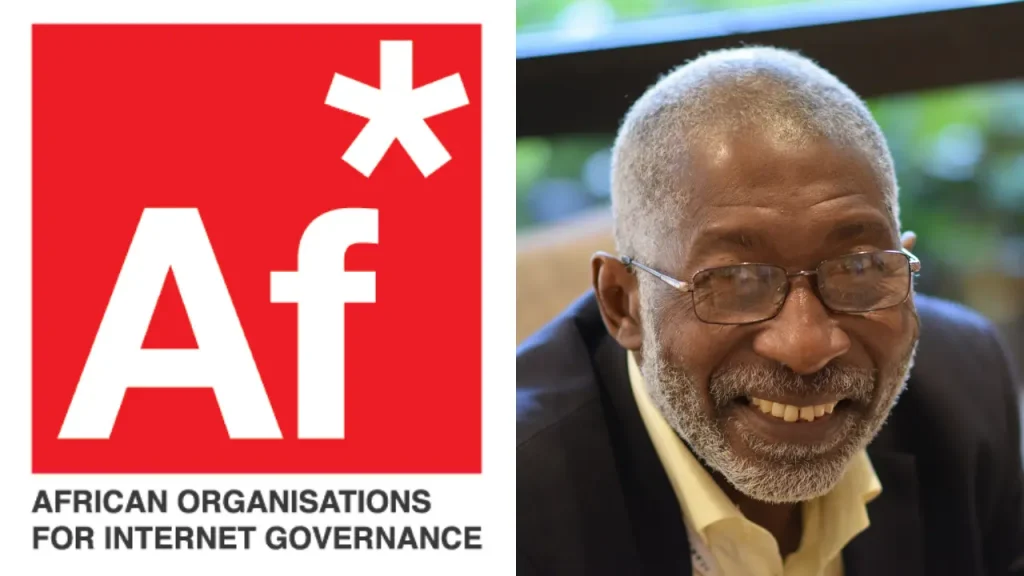- The AF* statement discloses for the first time the existence of an ‘Ad-hoc Committee on AFRINIC reforms’, previously unknown to many stakeholders.
- Despite rhetoric about bottom-up, multi-stakeholder governance, AFRINIC’s history and current manoeuvres point to a persistent pattern of closed-door control by Dr Nii Quaynor and associates.
The future of Africa’s internet governance has been thrown into fresh turmoil with the publication of an August 5 statement from AF*, a coalition of African internet organisations founded in 1998 by Dr Nii Quaynor. While the statement champions AFRINIC’s “bottom-up and consensus-based multi-stakeholder model,” it also quietly drops a bombshell: the existence of an “Ad-hoc Committee on AFRINIC reforms” that has been meeting behind closed doors.
For years, AFRINIC — the African Network Information Centre — has faced governance crises, legal battles, and leadership vacuums. It has stood without a CEO or functional board since 2022. But until this week, even veteran stakeholders were unaware that a select group, supported by “a technical advisor and two legal experts,” had been tasked with reshaping the organisation’s structure and policies.
Also read: Mauritian judge barred from investigating AFRINIC amid pre-election turmoil
Questions with no public answers
The AF* statement says the committee was formed to lead reforms but fails to reveal when it was created, who exactly appointed it, or on what authority. Nor does it disclose the committee’s charter, scope, or decision-making powers. Even AF* leadership admitted in its own remarks that there was “an absence of publicly accessible information regarding the problem statement and the Ad-hoc Committee’s charter.”
This raises troubling questions:
- Who initiated the formation of this committee?
- What specific reforms is it pursuing?
- Is the process genuinely open to community input, or merely a procedural façade?
Without answers, the committee risks being seen not as a legitimate reform mechanism, but as another opaque instrument in a long history of AFRINIC governance manipulation.
Also read: AFRINIC election: 2nd attempt to delay voting fails
A pattern of control, not community
AF*’s portrayal of AFRINIC as a model of community-led governance jars sharply with reality. Over the past two decades, AFRINIC has been dominated by a small circle of influential figures — notably Dr Nii Quaynor, often hailed as the “father of the internet in Africa,” and his associates. These same individuals oversaw AFRINIC during periods of severe internal dysfunction, including corruption scandals, staff abuse allegations, and financial mismanagement.
The current revelation of an undisclosed reforms committee fits a pattern: instead of open, transparent, and democratically accountable governance, decisions are shaped in private rooms, often by those who already hold disproportionate influence over AFRINIC’s fate.
Many community members see this as a continuation of the same top-down, personality-driven culture that has repeatedly undermined AFRINIC’s stability. By convening unpublicised committees, the leadership clique bypasses the broader community that AFRINIC’s founding charter was meant to empower.
Public rhetoric vs. private reality
AF*’s statement is peppered with declarations about upholding the multi-stakeholder model — a governance principle where policy is developed openly, with all stakeholders having an equal say. But the existence of a secretive committee with no disclosed membership list, meeting schedule, or decision-making process fundamentally undermines those principles.
The contradiction is stark: an organisation can’t credibly claim to operate on a “bottom-up” basis while simultaneously hiding the very structures that will shape its future.
Moreover, AFRINIC’s crises over the past decade have often been linked to failures of transparency. Whether in the mishandling of IPv4 resource allocations, questionable staff management practices, or the opaque handling of policy reforms, the absence of daylight has repeatedly enabled mismanagement.
Also read: As ICANN threatens to ‘review’ AFRINIC, an elected board is its only hope for survival
Real democracy or continued decline
AFRINIC’s credibility as Africa’s regional internet registry depends on restoring genuine community oversight and open governance. That means:
- Disbanding or opening up the Ad-hoc Committee to full public scrutiny, with published minutes, membership details, and reform proposals.
- Codifying safeguards to prevent any small group — however storied their past contributions — from exerting outsized control over policy and administration.
- Re-establishing a functional, elected board that represents the diversity of AFRINIC’s membership, not just its historical power brokers.
The alternative is bleak. If AFRINIC continues to be run through hidden committees and informal networks, it risks further alienating its membership, losing the trust of global internet governance partners, and even jeopardising its status as a recognised Regional Internet Registry (RIR).
A critical juncture
The African Internet Summit later this year will give the community a rare platform to demand clarity and reclaim control. But that opportunity will only matter if the hard questions about the Ad-hoc Committee are answered — not deflected.
AFRINIC was founded on principles of openness, community consensus, and regional empowerment. Those principles cannot be sustained through secrecy. The internet’s future in Africa should not be decided by a handful of gatekeepers behind closed doors. If AFRINIC is to survive — and thrive — it must return to true democratic governance, where decisions are made in the open, and by the community it serves.

